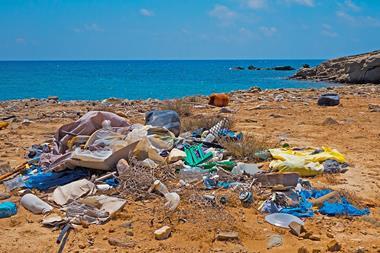Asset owners, asset managers, banks and insurers are being asked to sign up to a call on governments to agree an ambitious treaty on plastics that would help the finance sector play its role in ending plastic pollution.
The ‘Finance Statement on Plastic Pollution’ was drafted by the Principles for Responsible Investment together with UNEP FI and other non-profit organisations. The intention is to present the statement to governments meeting in Canada at the end of April for negotiations on a plastics pollution treaty.
Unlike the Kunming Montreal Global Biodiversity Framework, the treaty is to be a legally binding instrument. Governments have also been explicitly mandated to engage with multiple stakeholders.
“That is an opportunity for the private sector to contribute to the development of the process of this future treaty and we all know that policy and regulatory frameworks are the main driver of change for the finance sector,” said Peggy Lefort, pollution and circular economy lead at the UN Environment Programme financial institutions unit.
“Bringing the voice of the finance sector to the negotiation process is a unique opportunity that we couldn’t miss at UNEP FI,” she told IPE.
According to the convenors of the statement, investors should back it because a surge in plastic waste and pollution is linked to system-level risks that threaten the functioning of wider systems on which financial performance relies.
They also said that signing the statement on plastics pollution “underlines the importance of global efforts to meet the goals of the Paris Agreement, the Kunming Montreal Global Biodiversity Framework, the Global Framework on Chemicals and the UN Sustainable Development Goals”.
Lefort highlighted two points that the statement identifies as key elements of a robust treaty from the perspective of the finance sector. One is that it sets an objective to align financial flows, public and private, with the goals of the treaty, for example drawing inspiration from a the similar objective in the Paris Agreement.
“This in-principle signal then needs to be enabled, so it’s very important is that this future treaty sets harmonised targets and binding obligations across the plastics value chain,” said Lefort.
This is to allow businesses and financial institutions to redirect their financial flows, she said, explaining that reducing plastic pollution will, for example, require decreasing investment in virgin plastic production while increasing investment in ’reduce and reuse’ models, sustainable substitute material, collection and recycling.
Investors, banks and insurers have until 10 April 12:00 CET to sign the statement.
Looking for IPE’s latest magazine? Read the digital edition here






















